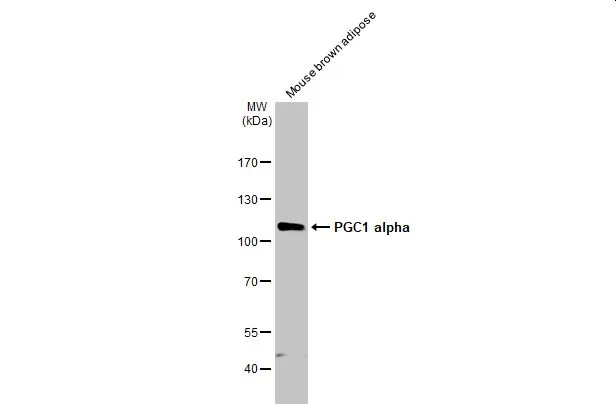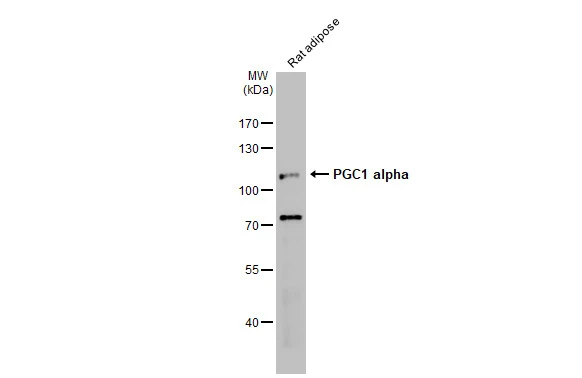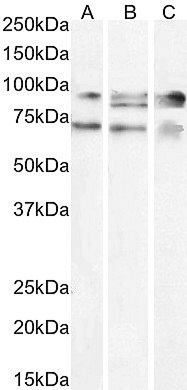
Mouse tissue extract (50 μg) was separated by 7.5% SDS-PAGE, and the membrane was blotted with PGC1 alpha antibody (GTX135859) diluted at 1:1000. The HRP-conjugated anti-rabbit IgG antibody (GTX213110-01) was used to detect the primary antibody.
PGC1 alpha antibody
GTX135859
ApplicationsWestern Blot
Product group Antibodies
ReactivityHuman, Mouse, Rat
TargetPPARGC1A
Overview
- SupplierGeneTex
- Product NamePGC1 alpha antibody
- Delivery Days Customer9
- Application Supplier NoteWB: 1:500-1:3000. *Optimal dilutions/concentrations should be determined by the researcher.Not tested in other applications.
- ApplicationsWestern Blot
- CertificationResearch Use Only
- ClonalityPolyclonal
- Concentration1.36 mg/ml
- ConjugateUnconjugated
- Gene ID10891
- Target namePPARGC1A
- Target descriptionPPARG coactivator 1 alpha
- Target synonymsLEM6, PGC-1(alpha), PGC-1alpha, PGC-1v, PGC1, PGC1A, PPARGC1, peroxisome proliferator-activated receptor gamma coactivator 1-alpha, L-PGC-1alpha, PGC-1-alpha, PPAR gamma coactivator variant form, PPARAGCIalpha, PPARGC-1-alpha, PPARgamma coactivator 1alpha, ligand effect modulator-6
- HostRabbit
- IsotypeIgG
- Protein IDQ9UBK2
- Protein NamePeroxisome proliferator-activated receptor gamma coactivator 1-alpha
- Scientific DescriptionThe protein encoded by this gene is a transcriptional coactivator that regulates the genes involved in energy metabolism. This protein interacts with PPARgamma, which permits the interaction of this protein with multiple transcription factors. This protein can interact with, and regulate the activities of, cAMP response element binding protein (CREB) and nuclear respiratory factors (NRFs). It provides a direct link between external physiological stimuli and the regulation of mitochondrial biogenesis, and is a major factor that regulates muscle fiber type determination. This protein may be also involved in controlling blood pressure, regulating cellular cholesterol homoeostasis, and the development of obesity. [provided by RefSeq, Jul 2008]
- ReactivityHuman, Mouse, Rat
- Storage Instruction-20°C or -80°C,2°C to 8°C
- UNSPSC41116161









